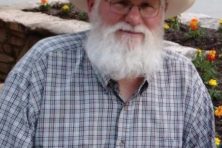Letter to the Editor: Freedom: From Where, For What?
- Share
- Tweet
- Pin
- Share
During the last few weeks, as the U.S. cases of COVID-19 surged more than 66,000 a day and I heard people argue against wearing a mask because they value their “freedom,” I have wondered whether life in a human society can support this idea of unrestricted freedom.
The “liberty” declared in our founding documents was from foreign rule, not from responsibility to the people with whom we share the land that supports us.
We know from experience that no human being is an island. Even at home or in “the wild,” we are not completely free to act without regard for others. No value, however positive, stands alone. Thus, we affirm that no one is above the law, and we accept being licensed to drive, wearing seatbelts, paying taxes and attending school because we understand that these acts contribute to the safety, well-being and integrity of our society.
The Revolutionary War relieved U.S. citizens of British control, even as we made English the official language. The new country elected citizens to govern instead of accepting the will of a king or a hereditary class.
Amendments to the Constitution guaranteed important choices – to assemble, speak in public, publish our views without punishment and choose our religion – but they can still be tempered by democratic decisions expressed as laws and precedents or customs.
We fought a Civil War about the freedom to profit from slave labor! Nothing in this history suggests that freedom is given to us carte blanche.
The language we chose is similarly unresponsive to absolute freedom. In medieval England, the word referred only to liberation from slavery (OED). Later, the ideas of self-determination and the freedom to act emerged (Oxford American Desk Dictionary), but autonomy became possible to imagine only when it was linked with democracy, in which we are “permitted to choose.”
Who or what has granted our unmasked neighbors unrestricted freedom? For what purpose?
Estella Lauter
Fish Creek, Wisconsin

